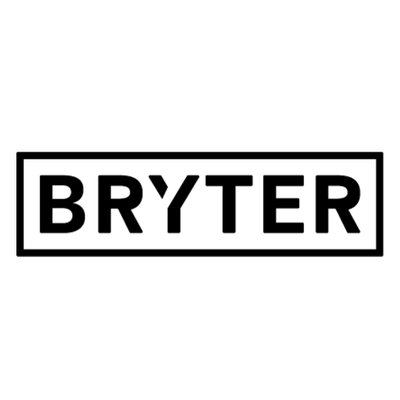

BRYTER Pricing Overview
BRYTER Alternatives Pricing



BRYTER Pricing Reviews
Bryter will let you assemble a business logic and turn it into a web app. It is very easy to learn, a pleasure graphics-wise, and offers more depth than you'd think. A few simple node types and actions can multiply into a complex module and route user input straight into a database, or output a simple email or document. You'll be able to build big modules in a fraction of the time it would take to properly program a website or app - and brand them properly.
Recursive actions and validations are hard to build. Internal data validation is rather basic; for example, if a user enters an address, it cannot be verified against, say, GoogleMaps. Looping back up a logic tree is impossible, as is building multiple choice lists with opt-out (e.g. this - that - none of the above). While building big modules is fast and satisfying, the pricing model will discourage from building nifty smaller modules. While it offers good document completion capabilities, would not recommend it for full-fledged document automation tasks.
Taking clients through complex business logic trees to offer solutions and advice in generated documents.
Usability and Gamification approach. Very easy and fun to sue. At the same time mighty in its applications. There is a special benefit in letting lawyers do the programming. No communication needed between developers and experts. Great and smart approach.
No one found yet. It does what it should do.
We are using BRYTER to train law students at our university. It makes Legal Tech real. Great for teambuilding and integrating interactive formats into legal education.
Bryter is an incredibly flexible platform which integrates multiple different tools for end to end automation. Whether you need to integrate emails, templates, documents, downloads or build databases and reports, it is all possible. As a tech-y who works with non-techies, it is refreshing to use a tool which all of my colleagues immediately understand the value of and are able to get straight to using. Finally, the bryter team are amazing. Responsive, thoughtful and supportive. I can't remember the last time I had such good customer service from a tech company.
We are waiting for a Hubspot integration which needs to be added to the roadmap, however this isn't really a blocker to our functionality.
We have streamlined the workflow, enabling our management team to reduce the amount of time it takes to supervise our trainee legal adviers. MT no longer has to switch between apps or programmes and we aren't losing people in the process due to poor admin or user error.
Great customer support. Content agnostic tool. Multiple possible applications - can be used for different purposes and across multiple in-house departments.
A minor downside was the learning curve being steeper than initially expected (but this also depends on the complexity of the documents one aims to automate), meaning more time was spent learning how to use it.
Automated generation of standardized legal documents. Strong reduction of time and energy spent on drafting such documents on manual basis and has allowed us to better service our internal clients by being able to focus on higher value matters.
What do I like best? The ease of use and the control you have to change and improve the tools you build. The easy-to-learn and understand interface lets you build a tool with "visual code" in no time. You can add the features and details you want, not just what a finished app/tool provider decided to include on their side. You can go back in whenever you want to make adjustments and improvements on your own.
What could be better? The ability to connect or interface with other systems is more limited than I would like. I know the BRYTER team is adding functionality and options tocommunicate with different programs and platforms, but this is the most limiting factor I see with BRYTER. If a task or job requires an entry into another system or a connection to another program that BRYTER cannot handle, the value BRYTER could bring is reduced, since using a BRYTER tool would still require a manual step or another tool to fill the gap between the systems.
I have been using BRYTER to develop tools that can generate first drafts of agreements, and other template-based documents, more quickly and efficiently than using word-based templates or PDF forms. You can create a tool that can customize a draft based on user inputs and still produce a clean and well-formatted product with a few mouse clicks.
The UI is beautiful and intuitive and is the best solution for no-coders.
I'd like a solution for individual lawyers in addition to enterprise pricing.
I've been able to create an automatic contract generation app, thanks to Bryter and it is helping people in India generate free contracts without the help of a lawyer.


